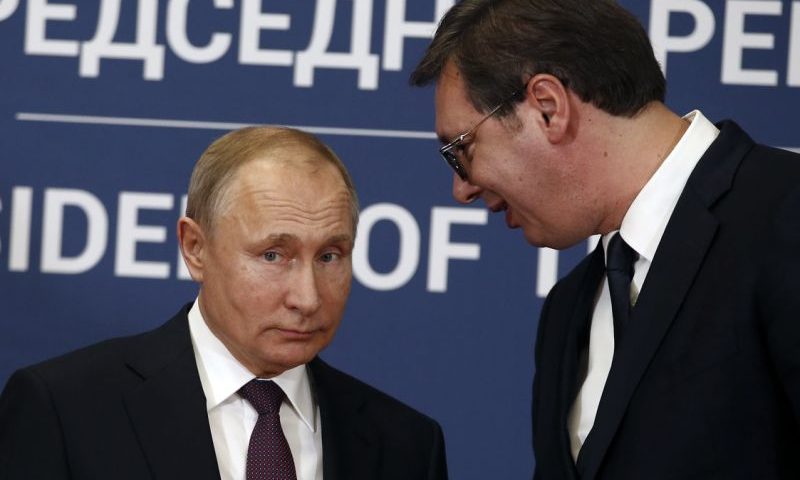Officials say Serbia will sign a free trade agreement with a Russian-led economic bloc, which could hamper the Balkan country’s efforts to join the European Union.
BELGRADE, Serbia — Serbia will sign a free trade agreement with a Russian-led economic bloc, officials said Monday, in a move which could hamper the Balkan country’s efforts to join the European Union.
The deal between Serbia and the Eurasian Economic Union (EEU) is expected to be signed on Oct. 25, according to a statement from Serbian President Aleksandar Vucic’s office following his meeting with Russian Ambassador Alexander Botsan-Kharchenko.
The ambassador said in the statement that the agreement will “give new quality to future cooperation” between Serbia and the Russian-led union and grant Serbia access to a market of 180 million people.
The EEU consists of Russia, Armenia, Belarus, Kazakhstan and Kyrgyzstan.
To join the EU, candidate countries must align their policies with the bloc’s, including imposing trade sanctions against Russia over its actions in Ukraine.
The EU remains Serbia’s largest trade partner, with trade amounting to nearly 26 billion euros ($29 billion) in 2018 — about eight times more than trade with all the EEU countries combined.
Russia has been supporting Serbia, its only remaining ally in the Balkans, in maintaining claims on the former Serbian province of Kosovo which declared independence in 2008. Moscow has also been beefing up Serbia’s military, raising concerns in the war-scarred region.
Serbia already has a free trade agreement with the largest EEU members, Russia, Kazakhstan and Belarus. The new agreement will only expand to Armenia and Kyrgyzstan, with a combined total population of 9.2 million people, according to a recent report by Eurasia Daily Monitor, a Washington-based analytical publication.
“Many have warned that Belgrade’s flirting with Moscow could backfire considering Serbia’s strategic commitment to ultimately joining the EU,” the report said.

